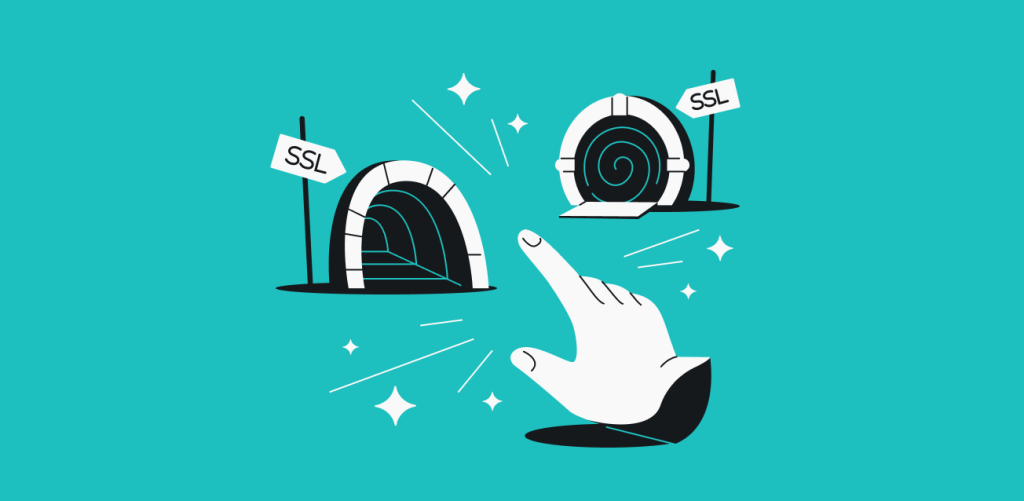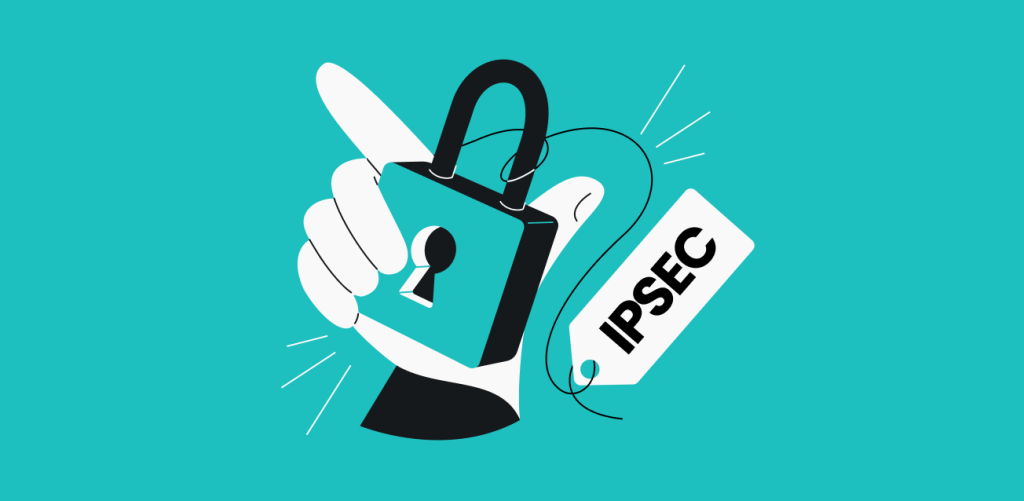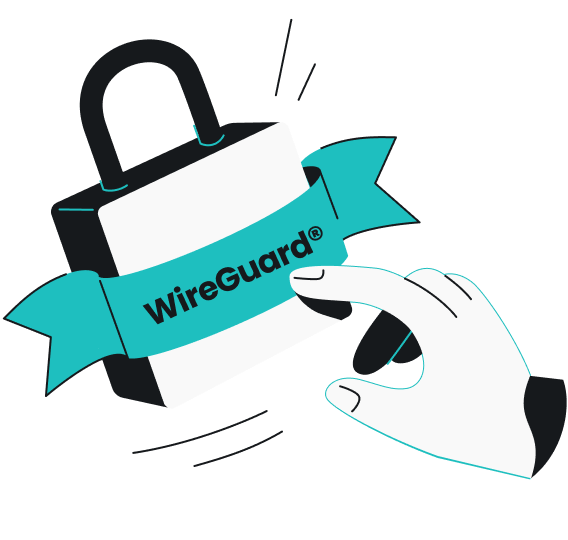
In the world of cybersecurity, there are many ways to go about your privacy, and SSL VPN is one of them. An SSL VPN is a virtual private network that can run an SSL protocol, but more can be said about what it is, its types, and why it’s so dang important.
Table of contents
SSL VPN explained
SSL VPN stands for Secure Sockets Layer Virtual Private Network. It’s a VPN that provides secure remote access to a private network over the internet using an SSL protocol.
It’s worth noting that the term “SSL VPN” is used interchangeably with “TLS VPN” since TLS (Transport Layer Security) has superseded SSL as the industry-standard encryption protocol. So, when you come across “SSL VPN,” it often refers to using TLS for encryption.
An SSL VPN uses SSL/TLS protocols to establish an encrypted connection between a user’s device and the VPN server, ensuring that the data transmitted between them is secure and protected from eavesdropping or unauthorized access.
Types of SSL VPN
With the help of an SSL VPN, a user can establish secure connections to internal HTTP (and HTTPS) services using standard web browsers or client applications. That depends on which of the two SSL VPNs you use — Portal or Tunnel.
SSL Portal VPN
An SSL Portal VPN, also known as a clientless VPN or web-based VPN, is a type of SSL VPN that provides remote access to network resources through a web portal. It allows users to securely access applications, files, and other resources hosted on a private network using a standard web browser.
Mostly used by company employees to remotely access specific corporate resources.
SSL Tunnel VPN
An SSL Tunnel VPN, also called an SSL Network Extender (SNX), is another type of SSL VPN that establishes a secure encrypted tunnel between the user’s device and the private network. It enables access to network resources as if the user’s device were directly connected. However, this type requires an installed VPN client on the user’s computer.
One of the most well-known uses of SSL Tunnel VPNs is secure remote access for individual users or small teams.
The difference between Portal and Tunnel
The main differences between SSL Portal and SSL Tunnel VPNs are convenience and network accessibility.
The SSL Portal VPN is more convenient for the user but limiting — it lets you access only certain parts of a network you’ve been given access to. It also has a security risk at the user’s end — since only the browser traffic can be encrypted, it leaves the rest of your internet traffic unencrypted.
A worthy mention — since access to network resources is controlled and limited, the network has a lesser probability of threats. Yay for the network manager!
Unlike an SSL Portal VPN, an SSL Tunnel VPN will require a client (VPN software), which will give you access to the entire network.
How does an SSL VPN work?
Step 1: User initiates connection
The user launches the SSL VPN client software or accesses a web portal provided by the VPN provider.
Step 2: User authentication
The user provides their credentials (such as a username and password) to authenticate themselves to the SSL VPN server. This step ensures that only authorized users can establish a VPN connection.
Step 3: Secure connection establishment
After successful authentication, the SSL VPN client and server initiate a secure connection using SSL/TLS protocols. This process involves the following:
- SSL handshake:
The client and server perform an SSL handshake to negotiate the encryption parameters and establish a secure channel. This includes exchanging cryptographic keys, verifying the server’s SSL certificate (which contains its public key), and agreeing on the encryption algorithms and session keys.
- Encryption of traffic:
Once the SSL handshake is complete, the client and server encrypt all data transmitted between them. This encryption protects the confidentiality and integrity of the data as it travels over the World Wide Web.
Step 4: Data transmission
With the established secure and encrypted connection, the user’s device can send and receive data over the SSL VPN connection. All data transmitted between the client and server is encrypted and protected from unauthorized access.
Step 5: Access to resources
Once the SSL VPN connection is active, users can access resources within the private network. This may include accessing files, applications, databases, or other resources typically only available within the private network. From the user’s perspective, it appears as if they are directly connected to the private network, even if they are physically located elsewhere.
Step 6: Session termination
When the user finishes their VPN session, they can disconnect from the SSL VPN server. The secure connection is terminated, and the user’s device is no longer connected to the private network.
It’s important to note that steps and user interface may vary depending on the specific SSL VPN implementation and the software or web portal used by the service provider. However, the underlying principles of authentication, secure connection establishment, and encrypted data transmission remain consistent across all SSL VPNs.
SSL VPN vs. IPsec VPN
IPSec (Internet Protocol Security) VPN is a client-based VPN solution that uses different protocols to create a secure link between the user and the VPN server and between it and the internet.
IPSec and SSL VPNs encrypt your traffic and bring you privacy, but they differ in how they do it, and there are apparent differences between the two:
- Software — SSL is browser-based, and it doesn’t need additional apps, while the same can’t be said about an IPSec VPN;
- Security — SSL uses TLS, a standard protocol for securing online transactions on website-based traffic (you can see that by the security padlock next to your browsers address bar), while IPSec encryption is only for VPN applications;
- Traffic encryption — SSL only encrypts a part of your web traffic, but an IPSec VPN can encrypt entire network traffic;
- Authentication — SSL uses third-party certificates that contain public keys, while IPSec VPN keys are used and exchanged only by the client device and the server;
- Network access — SSL can connect to specific sites and apps (resources of larger networks), while IPSec connects a user to networks.
IPSec VPNs are usually deployed on the firewall, allowing or denying remote host access to corporate networks. SSL VPN gateways are implemented behind the firewall, with rules that permit or deny access to specific applications or data, like mailboxes or URLs hosted on internal corporate servers.
What makes SSL VPNs important
Accessibility and ease of use! A significant advantage of an SSL VPN is its ability to provide secure access to network resources without needing additional software installation on the user’s device. SSL VPNs are typically supported by most modern web browsers, making them convenient for remote access from various devices.
It’s network management-friendly! SSL is best suited for users who want to control network access — give remote users limited access to specific resources rather than the whole network.
Closing remarks
SSL VPNs are a cost-effective security solution for starting businesses and can be fool-proof, thanks to controlled network access.
Due to the SSL VPN’s nature of ensuring secure data transmission over the internet, it’s excellent for businesses with remote workers or sensitive data that must be protected from unauthorized access.
It’s simple and is used daily by almost every internet user. But, aside from that, its general security levels can’t compare to more elaborate VPNs.
FAQ
What is the difference between an SSL VPN and VPN?
While both stay true to the definition of a VPN by protecting your internet connection, the difference lies in the traffic they encrypt and what resources they can access.
VPN refers to a Virtual Private Network application that encrypts your entire device’s network traffic and secures your internet connection by rerouting your data through VPN servers.
An SSL VPN refers to an encrypted browser connection. The encryption is end-to-end between the browser and the server it’s trying to connect to.
Is SSL as secure as a VPN?
VPNs are usually considered a more secure choice.
An SSL and VPN encryptions differ, and so does the security level both provide. It’s important to mention that SSL encryption only encrypts your browser traffic and doesn’t directly secure the data stored on end systems. A VPN encrypts your device’s data (if not the whole network’s).
Does a VPN require an SSL?
In most cases, the word “require” is an extreme. Some consider using SSL while simultaneously running a VPN redundant since why would anyone need to encrypt their connections twice? But there is one appropriate use case for using an SSL with a VPN.
Using an SSL with a VPN will save you from internal attackers “sitting on the same server” as you are; in other words — attackers who are already inside the VPN.



